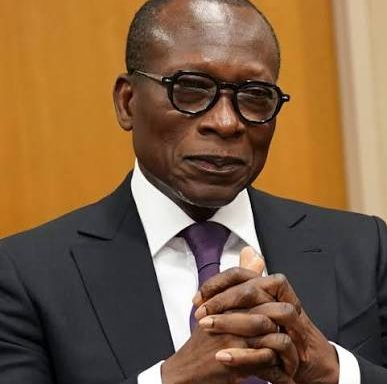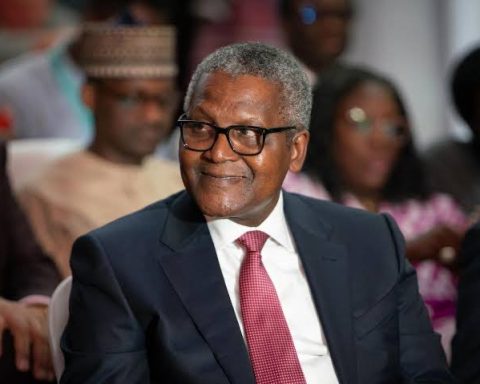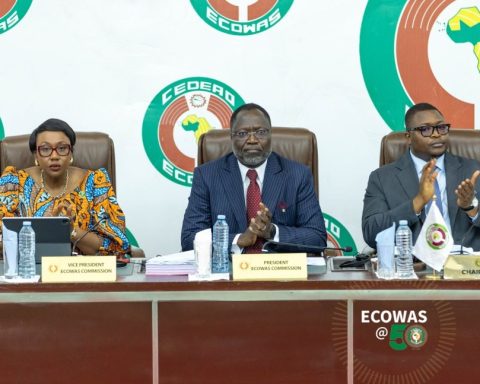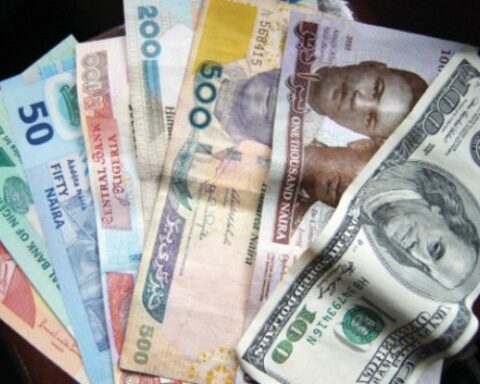The Central Bank of Nigeria (CBN) Governor, Dr Olayemi Cardoso, says Nigeria’s gross external reserves rose to $40.1 billion as of July 2025.
He said this figure represents about 9.5 months of import cover for goods.
Join our WhatsApp ChannelThis marks a significant rebound from earlier fluctuations in the year and represents the highest level since November 2024, when reserves briefly touched $40.2 billion.
Cardoso made this known during a press briefing after the 301st Monetary Policy Committee (MPC) meeting on Tuesday, 22 July in Abuja.
However, checks on the external reserves data on the CBN’s website revealed that it hit $38.25 billion as of Monday, 21 July 2025, being the highest since 5 June when it reached $38.28 billion. The recovery follows a decline earlier in the year, when reserves dropped to around $37.1 billion due to FX market interventions and debt repayments.
Drivers of Growth
The CBN governor attributed the rebound to strategic measures, including reducing short-term FX liabilities (e.g., swaps and forwards) and boosting non-oil inflows (such as diaspora remittances and foreign portfolio investments).
However, the reserves faced pressure in the first half (H1) of 2025, declining by $3.5 billion due to FX interventions and lower oil prices (Brent crude fell to $68 per barrel in June).
READ ALSO: Services, Industry Sectors Drive Nigeria’s Economic Growth As GDP Rises By 3.13% In Q1 2025
Analysts believe that the CBN’s defense of the naira and external debt obligations also impacted reserves.
In comparison with other African countries, Nigeria’s reserves remain below South Africa, which has $65.2 billion and Egypt’s ($48.7 billion) as of mid-2025.
While acknowledging risks, including global oil market volatility and potential demand-side pressures in the FX market, the CBN projected sustained growth, citing improved investor confidence and diversification efforts.
He said there is growing confidence in the naira among Nigerians, reflecting renewed optimism about the CBN’s ongoing reforms and improvements in macroeconomic stability.
The CBN boss said the MPC noted the foreign exchange market’s continued stability, which was boosted by improved capital flows, earnings from increased crude oil production, rising non-oil exports, and a significant reduction in aggregate imports.
The CBN governor announced the committee’s decision to maintain current monetary policy stance for the third straight time, to further bring down the inflation rate.
He said all 12 MPC members voted to hold the Monetary Policy Rate (MPR) at 27.5 per cent, maintain the asymmetric corridor at +500/-100 basis points, retain the Cash Reserve Ratio at 50 per cent for deposit money banks and 16 per cent for merchant banks, and keep the liquidity ratio at 30 per cent.
According to him, the apex bank’s policy initiatives, such as tighter monetary conditions and a market-driven foreign exchange system, are starting to have a significant impact.
He stressed that expanding access to Naira-denominated payment instruments overseas and the narrowing gap between official and parallel exchange rates were structural rather than short-term measures.
The governor underscored reforms intended to diversify Nigeria’s reserve base. He cited strong inflows from diaspora remittances as well as recent reforms like the non-resident Bank Verification Number (BVN), which enables Nigerians living abroad to open and operate domestic bank accounts remotely.
On inflation, he said the committee acknowledged the headline inflation decline for the third month, mainly driven by the moderation in energy prices.
Despite dropping, he noted that inflation remains high but the monetary authority is committed to ensuring that it drops to a single digit.
Victor Ezeja is a passionate journalist with seven years of experience writing on economy, politics and energy. He holds a Master's degree in Mass Communication.











